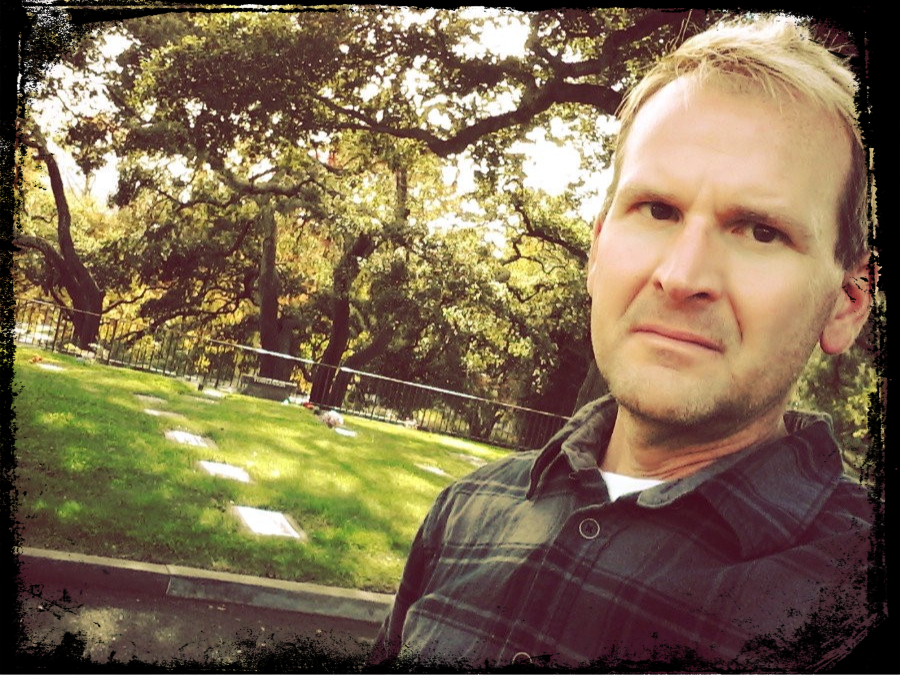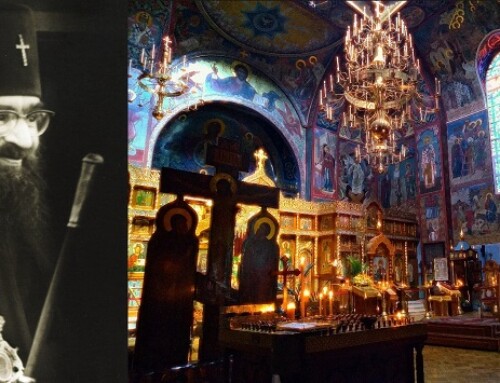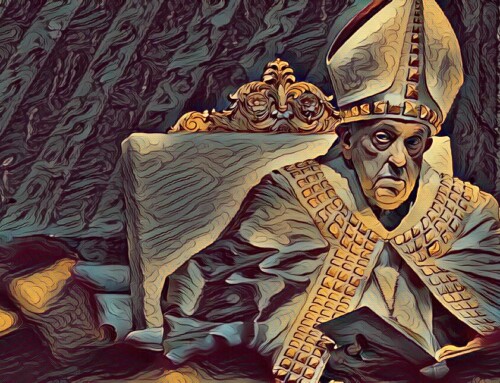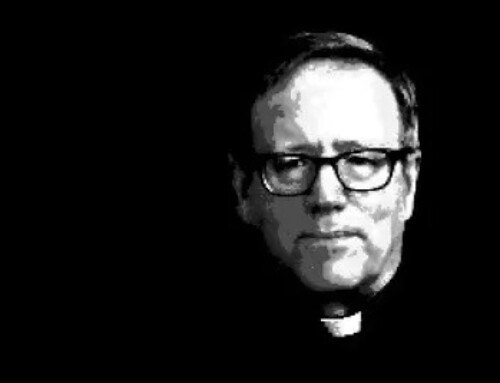At mid-life, with the possibility of another corrective surgery looming before me, I often get angry. During my early-30s, I spent a lot of time in recovery. I underwent a series of medical procedures meant to correct damage to my rectum and lower digestive tract. At the time, I accepted the often unimageable pain that went part and parcel with almost stitching closed the sphincter muscles. I felt as if I had died, and awoken in hell; my punishment: being tortured by the damned soul of the Marquis de Sade. Somehow, with the help of God, I got through it. Yet, I always knew that these interventions would never reverse what had already been done. My foolishness and my rebellion came with a heavy price.
Since then, I’ve proceeded through several different stages of hatred, self-doubt, and inner-torment. Following my near-death escape from homosexuality, much of my enmity I directed almost solely towards the gay male community. I was looking for someone to blame. Through the siren-song of the chorus from YMCA, they lured a lost and lonely young man with the promise of companionship, comradery, and the male-affirmation I never received. They had deceived me. Although there was some truth in this highly emotional assessment of my past, only, I had been deceived by the deceived. And those who preceded me into this vast world of illusion paid the heaviest price of all.
When I was at home listening to disco-records, the boys and young men who were called to “Go West” during the initial gay migration to San Francisco in the 1970s – would be among the first to die. A decade later, when I arrived in the Castro, many of them were already gone. As a result, due to the intense trauma they experienced, many of these same men were beginning to doubt their adherence to the gay male dogmas of unrestrained sexual liberation and freedom. As I came-out and spent most of my nights in the gay bars and dance-clubs, some gay men were leaving the centers of gay life for a more subdued life with one partner.
A few of these guys simultaneously drifted into the local gay-affirmative churches – primarily a Catholic parish located just a few blocks from the center of the Castro. I believe, they were looking for some sense of stability. A friend of mine was one of them. Unlike me, he often hated the often-excessive nature of an all-male community. I still don’t know, but I am guessing that he sought peace and reassurance from Catholicism. A priest told him to remain steadfast – he would find someone. He did. Due to his newly found domesticity and spirituality, I didn’t see him for a while. When I finally did, he was happy and excited. He gave me a copy of John J. McNeill’s book “The Truth About Homosexuality.” I pretented that I was insteresed, accepted the book, but I never read it. A couple of years later, I heard he died of AIDS.
After I moved out of San Francisco, filled with doubt, in an old cardboard box that I found at the back of my bedroom closet, I came across the book my friend gave me. Untouched for years. I finally read it. In hindsight, I could see why it had such a major impact on him. McNeill argued that the homosexual orientation “is a gift from God to be accepted and lived out with gratitude.” In other words, we are as God intended us to be. He added: “Every human being has a God-given right to sexual love and intimacy.” This included those with an attraction to the same-sex. Recently, as if the same spirit that possessed McNeill, had jumped from one body to another, the Jesuits have unleashed another gay-affirmative priest upon the world. Gaining a level of access, prestige, and respect that McNeill never even imagined, James Martin has slightly expanded upon the homosexuality as “a gift from God” theory into “God made you this way.”
When I was a teenager, I heard much the same rhetoric from a local priest. Before I met him, I already felt that my trajectory was set. Years later, after remembering my dead friend – I began to wonder. Could my life have taken a different direction? Perhaps. What this priest did accomplish – he took away some of my choices. I thought I had nowhere else to go.
Over the past 20 years, I have somewhat reevaluated my earlier presumptions. I no longer blame gay men. I can’t.
What is unspoken, but has become abundantly clear – there is a strong association between childhood sexual abuse and later emergence of homosexuality.
46% of the homosexual men in contrast to 7% of the heterosexual men reported childhood homosexual molestation.
26% of gay men reported sexual experiences before age 17 with someone at least 5 years older.
In the current cultural and political climate, a discussion concerning the intersection of childhood molestation (especially in men) and homosexuality is taboo. At the same time, there is an enlightened movement within some sectors of journalism and medicine (particularly by women) to critically explore the transgender movement; Professor Lisa Littman, Dr. Debra So, and Abigail Shrier have articulated their concerns, specifically about girls who suddenly identify as transgender. However, any sort of discussion around the topic of “restorative therapy” – mislabeled as “conversion therapy” – inevitably descends into an argument concerning homophobia and religion. Abused boys have been abandoned once again. The message of society – “Go be gay.” From the Roman Catholic Church – “God made you that way.”
Informed observers of the contemporary transgender phenomena point to the irreversible damage and side-effects caused by hormone therapy and surgeries. They advise caution, particularly with regards to medical professionals, parents or friends, during the process of guiding or counseling a minor who claims to be transgender. Typically, there is no such restraint shown when a young man comes-out as gay; in fact, James Martin utilizes the same scare-tactics playbook devised by LGBT-activists, who declare unequivocally that a child who is not affirmed in their sexual identity will kill themselves. Although these sometimes-visible outward manifestations of the trans-person are undeniable, the effects of male homosexuality, except during the most tragic years of the AIDS crisis, are almost completely hidden from view. Yet, those who live with the repercussions – know they are all too real. I am one of them.
In Randy Shilts’ groundbreaking study of the early-AIDS era in San Francisco, “And The Band Played On,” he described how city health-officials were alarmed by the sudden rise of illness and disease among the gay male populous:
Between 1976 and 1980, shigellosis had increased 700 percent among single men in their thirties. Only seventeen cases of amebiasis were reported in 1969; now the reported cases, which were only a small portion of the city’s true caseload, were well past 1,000 a year. Cases of hepatitis B among men in their thirties had quadrupled in the past four years.
Anorectal symptoms in men who have sex with men (MSM) may be caused by conditions related to infections for which they are at increased risk (eg, proctitis, perianal abscess/anal fistula, anal warts/dysplasia, human papillomavirus [HPV]-associated anal cancer) or conditions seen in the general population (eg, anal fissure, hemorrhoids, pruritus ani).
In one study among men who have sex with men (MSM), routine screening found that 85% of rectal infections with chlamydia or gonorrhea were asymptomatic. Common complaints of anorectal STIs include anal pain, tenesmus, urgency, purulent drainage, and bleeding.
I am constantly reminded of the excesses of my past. The bathroom has become a torture chamber. Basic biological functions are excruciating and painful. In my case, this is the last laugh resounding from the depths of hell. In the gay world, the public restroom is oddly eroticized. In our youth, that public-private space was sometimes the setting for sadistic forms of persecution and harassment; when I was a kid, an older male student assaulted me in the boy’s restroom at my grammar-school. At a gay bar, a Castro disco, and even in a landmark movie-theater, the restrooms served as hook-up hubs, venues for voyeurism, and semi-secluded places to have name-less quick-sex. When I first showed up in San Francisco, I regarded this practice as semi-disgusting. The propensity of certain bars to only have urinal troughs in their bathrooms was revolting. I swore I would never sink so low. In a few years, I would be sitting on the lid of a public toilet, my feet resting on the edges of the seat, waiting for any man to enter through the open door of the stall.
I suppose that chapter of my story could have had a different ending; I might have drifted out of the gay scene and settled-down with one man; a Catholic priest advised me to do so. I could have died. But I didn’t. Now, I am frequently sick and discouraged. I suffer from the conditions that are oftentimes peculiar to gay men, but with none of the transitory benefits of sexual activity. I would like to think that I gave-up that part of myself, because I wanted to aspire towards something morally virtuous; in reality, I couldn’t go on anymore; my body had given-up.
Now, I sometimes spend too much of my waking moments pondering what happened so long ago. To further drive myself continually to the edge of mental instability, I wonder why I am wondering. For the most part, my almost daily unease is particularly caused by the indifference of a world that ignores my suffering – and the pain of countless others. In the movie “Jaws,” there is a wonderful scene between Quint, Hooper, and Brody. Alone on Quint’s fishing boat, while tracking a man-eating shark, the three men sit at a table, drinking liquor, well into the night. Suddenly, Quint and Hooper begin to compare their various scars – typically caused by some encounter with a shark; Brody has nothing to add. For Quint and Hooper, their male-bonding banter is a way for the two men, who have been at odds with each other, to find some common ground in their shared similar experiences; but for Quint – this moment goes deeper. Hooper notices a scar – a tattoo Quint had removed. The shadow of that tattoo was the only physical expression of Quint’s former service upon the USS Indianapolis during its fateful last voyage in 1945. He tried to erase it, but something still remains – the memories. He can’t wipe away those.
One of the most poignant stories from the few survivors of the Indianapolis were the mass hallucinations suffered by some of the men as they floated in the shark-infested water; forced to drink salt water by the extreme heat and thirst, some of them would swim towards the ship that they swore never sink. They were never seen again.
Although under very different circumstances, sometimes, that is almost how I remember those who were lost – I see them walking away – towards some fabled city at the end of the yellow-brick road. They’re gone. And, like Quint, I bear wounds that won’t go away. I also occasionally reveal the pain that no one can see. Not to draw attention to myself – because the injuries that continue to plague me are awkward and embarrassing to expose. But especially in a Church, crowded with voices trying to suppress those who do not agree with them, sometimes it’s the only way to say: “Look, I am here. I exist. My pain is real.”
As an earthy institution, the Catholic Church has taken part in a deception. They have hidden the truth; in a neurotic need to appear compassionate and sympathetic, a number of priest and prelates abandoned all forms of admonition for total affirmation. They do not accompany – they tell people where to go; if someone experiences same-sex attraction, they are gay. At least when I was growing up, a priest would advise you to play-it-safe and wear a condom; today, they don’t even do that. When a priest tells you that your homosexual identity is indelibly linked to the part of you “that gives and receives love,” how is a desperate and disoriented soul supposed to interpret such a message? In my mind, there are multiple ways in which gay men give and receive love, and one of those is via anal sex.
How many boys and young men turned towards the gay male community – because they were sexually abused by priests, or told by a priest that “God made you that way?” We will never know. Because many of them have been permanently silenced.
Critics of the more fanatical aspects of the transgender movement believe that one day, when the physical ramifications of this strange episode in history causes some people to experience regret, a flurry of lawsuits will follow; doctors, physicians, and therapists will be sued for prescribing radical forms of treatment for minors. The Catholic Church should experience the same sort of reckoning; perhaps priests and bishops didn’t do anything illegal, but they are responsible for the innocent young men and women that they endangered. They will pay for what they allowed. I have imagined my dead friends looking down from heaven with pity upon bishops and priests, collectively trapped inside a filthy latrine, who now exhibit the marks of someone else’s sins: anal fissures, prolapses, and huge distended hemorrhoids. It’s a perverse thought, but it gives me comfort.






Thank you for relentlessly identifying this deep sickness within the Catholic Church. It is no more prevalent within the Church than in other institutions or areas of society — less so in fact — but it is far, far more wrong and hypocritical that this sickness is festering comfortably within the Church.
You discussed with Fr. Nix how great an obstacle you found in “the Thing”, the Church as institution. But the activity of the Apostles in the 1st century tells us clearly that they understood their mission, given them by Christ, to have been the establishment of The Thing to carry on the faith. It is not The Thing which betrays, it is the human beings who use it to shelter and spread their personal infection.
Your graphic descriptions of the consequences of the gay life may disturb some, but I’m grateful that you have given this account. It needs to be done. And you are in the good company of Dante when you supply graphic images of punishment for sin, which we must imagine for both those who commit those acts upon others, and those who would paint that life in soft rainbow colors to seduce them. Thank you for expressing these difficult, genuinely painful realities.
I pray for you every day, that you will find relief from your suffering and will find reward for what you have sacrificed to deliver the truth. Please don’t stop. And I pray that you will not let the betrayals of fallen men who hide their pact with the Father of Lies under the trappings of The Thing — the Church instituted by Christ to give grace. You have obviously found some true hearts within it — let them and their fidelity speak to you.
You too have your mission, instituted by Christ, and like that first generation of apostles, you sacrifice a lot in order to fulfill it. Please believe that none of it, especially your efforts to cleanse the temple, is in vain. God bless you always.
I hope you feel better, Joseph. I wish the Church would be more honest with you and with others like you. Some of your content may be graphic, but people need to know the consequences of the gay lifestyle. The shiny veneer of rainbows and puppies that get thrown up by the gay communitiy, authorities, and many churches gives people a false impression of some sort of candy kingdom gay paradise, like everything will be fine and dandy. Your accounts put a big hole in that image, and I’m sure there are more than a few individuals who have been helped by your accounts of what happens.
The people in the Church who have facilitated this Candy Land veneer will get their dues if they don’t repent.
Joseph,
Are you saying that you have left the Catholic Church?
That is my assumption based on the title of this essay–“Confessions of a Former Prolapsed Catholic”– and your frequent talk of leaving the Church.
I carefully read this essay, and you don’t clearly say if you are in the Church or not, but I know from reading a lot of your past writings that you are often vague.
I have not left the Church.
By the way the use of the modifier, “Prolapsed”, in the title makes it unclear whether you are a former Catholic, or a former PROLAPSED Catholic, who has had his prolapse medically eliminated but is still a member of the Church.
Both.
Per Wikipedia, John J. McNeill, the author of “The Truth About Homosexuality,” was a Jesuit when he published the book in 1976. In 1987 the Vatican forced the Jesuits to expel him, although he remained a priest.
I think the essay is unintentionally vague about the fact that McNeill was a priest and a Jesuit..
Joseph, good that you have not left the Church. Might it help to realize, that the Church is what lives on through its eternal teaching, and not what we see and hear from God’s imperfect and unworthy servants here on earth? They can and will let us down. The light of Christ, through His word and teaching is what endures. And that teaching will never let us down. It may be of seemingly small comfort when we’re struggling with the effects of sin in our lives. But it is a gateway of eternal hope. And a blessing whenever we’re tempted to despair or turn away from Christ and His Church.
Yes, those priests accepting same sex relations are guilty of misleading and complicit in terrible sin. But, Let’s get serious. If the church maintained a hard line against same sex relations, you would not have listened anyway.
I don’t agree with your assumption here. If the Church had continued to maintain all its hard line teaching about sex in general, and had done so with the vigour God expects it to teach the Truth, then we would be living in a completely different society, both within the Church and outside it. In any case, who can say what any of us would have done in different circumstances? Only God knows that.
Dear Joseph,
Your words are not lost but rather give breath to the suffering you endure and you are a witness to many. Thank you so much for speaking the Truth! PLEASE don’t every leave or give up. There have been times throughout my life where I have been so frustrated with the Church and thought how hypocritical “they” are. It clicked one day that it wasn’t the Church or her teachings or the examples of the many great saints who lived the faith and suffered that were hypocritical but rather the misinformed and those who reject the Truth and interpret it their own way. Unfortunately, the Church is not immune to evil and if we leave, we allow evil to win. I am often reminded of Christ on the Cross and think I will be abandoning Him at the Cross if I leave. We need you to continue to speak the Truth!
Hi Joseph
I appreciate your honesty. There are some flaws in your reasoning that I wish to address.
First, the church is not composed of evil men. The church is always spotless because it is God’s church. These men who occupy important positions are liars. From the false pope on down, we as Catholics need to discern the truth from church dogmas and scripture; not trust any man as source. It is sad but this is where we are today. The church has always taught homosexuality is wrong and it is classified as the worst of sins; a sin that cries to God for vengeance. The church teaches it comes from abuse, neglect and poor family role modeling; all this has been proven true and nobody can change it. Class pope Francis said “who am I to judge?” He wants to water church teaching down and spread error and sin. He pretends to love people by permitting sin; which is encouraging self destruction. He is a lost sheep and not Catholic at all.
No legitimate pope or priest can downplay these teachings. Jesus never changed teachings like Sodom and Gomorrah. You should not blame “the church” (which is what these evil men want you to do); instead you should blame lost sheep like Jorge Bergoglio who want the church to look bad so people flee from it. The men who abuse people as priests or bishops or pope are abused men themselves, like those trapped in homosexuality ; otherwise they would not be attracted to such evil work. Abused often become abusers as you stated.
Secondly, leave the vengeance to God. To hope for these lost sheep to be eternally punished shows that you still have not healed. You are lugging around a grudge against men who need your prayers. This only hurts yourself. Pray for these sad men to resign as priests and popes and bishops; and pray for them to turn to God. The more you pray for them, the more this burden will leave you. You are imprisoning yourself in this anger and pain. You are taking this energy wherever you go and therefore still spreading evil energy yourself. In fact, you need to forgive these debts or you will be judged for them yourself. God pardons the merciful but you are currently condemning yourself with your vengeance.
We need strong men like you in the church but you need to clear your head first. You are still lost in anger and confusion; but once you forgive everybody, including yourself, you will be a treasure for God’s Holy church.
Your brother
Henry Stoneking
Just that my heart goes out to you with love and prayers, for your complete honesty and the struggles you reveal. May the Lord richly bless and strengthen you when you are weary on this journey. Your sister in Christ.
Reading this because of OnePeterFive. Thank you for your honesty and moral courage. A broken body, a broken life, is hard to bear. 33 yrs ago next month I became paralysed. There is something else I have found in the Church which certainly does not help people who bear awkward crosses. It is the “neurotic” aversion to telling people about the teaching of redemptive suffering. Yet it is a powerful allieviator of that lingering sense of despair that accompany the chronically burdened. May your honesty about the truth console them and may Christ renew them. To be a priest or a bishop is to bear a heavy responsibility for such wretched suffering. Not to speak the truth as you do now.
Your strength and courage makes me speechless! That must sound lame but it is true. I am praying for you.
May God bless you always Joseph!!!!
Come to Orthodoxy The true Church
The true Church 
Very sorry you experience these trying physical symptoms. Prayers to the Lord for you.